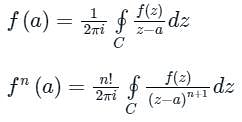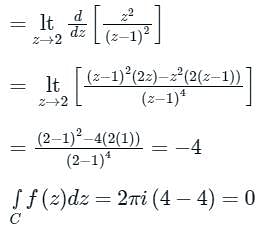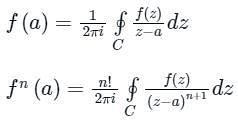Electronics and Communication Engineering (ECE) Exam > Electronics and Communication Engineering (ECE) Tests > Test: Residue Theorem - 1 - Electronics and Communication Engineering (ECE) MCQ
Test: Residue Theorem - 1 - Electronics and Communication Engineering (ECE) MCQ
Test Description
10 Questions MCQ Test - Test: Residue Theorem - 1
Test: Residue Theorem - 1 for Electronics and Communication Engineering (ECE) 2024 is part of Electronics and Communication Engineering (ECE) preparation. The Test: Residue Theorem - 1 questions and answers have been prepared
according to the Electronics and Communication Engineering (ECE) exam syllabus.The Test: Residue Theorem - 1 MCQs are made for Electronics and Communication Engineering (ECE) 2024 Exam.
Find important definitions, questions, notes, meanings, examples, exercises, MCQs and online tests for Test: Residue Theorem - 1 below.
Solutions of Test: Residue Theorem - 1 questions in English are available as part of our course for Electronics and Communication Engineering (ECE) & Test: Residue Theorem - 1 solutions in
Hindi for Electronics and Communication Engineering (ECE) course.
Download more important topics, notes, lectures and mock test series for Electronics and Communication Engineering (ECE) Exam by signing up for free. Attempt Test: Residue Theorem - 1 | 10 questions in 30 minutes | Mock test for Electronics and Communication Engineering (ECE) preparation | Free important questions MCQ to study for Electronics and Communication Engineering (ECE) Exam | Download free PDF with solutions
*Answer can only contain numeric values
Test: Residue Theorem - 1 - Question 1
The value of the integral  where z is a complex number and C is a unit circle with centre at 1 + 0j in the complex plane is __________ .
where z is a complex number and C is a unit circle with centre at 1 + 0j in the complex plane is __________ .
 where z is a complex number and C is a unit circle with centre at 1 + 0j in the complex plane is __________ .
where z is a complex number and C is a unit circle with centre at 1 + 0j in the complex plane is __________ .
Detailed Solution for Test: Residue Theorem - 1 - Question 1
Test: Residue Theorem - 1 - Question 2
The value of ∮1/z2 dz, where the contour is the unit circle traversed clockwise, is
Detailed Solution for Test: Residue Theorem - 1 - Question 2
| 1 Crore+ students have signed up on EduRev. Have you? Download the App |
Test: Residue Theorem - 1 - Question 3
Let z = x + iy be a complex variable. Consider that contour integration is performed along the unit circle in anticlockwise direction. Which one of the following statements is Not True?
Detailed Solution for Test: Residue Theorem - 1 - Question 3
Detailed Solution for Test: Residue Theorem - 1 - Question 4
Test: Residue Theorem - 1 - Question 5
If f(z) has a pole of order n at z = a, then residue of function f(z) at a is
Detailed Solution for Test: Residue Theorem - 1 - Question 5
Detailed Solution for Test: Residue Theorem - 1 - Question 6
Test: Residue Theorem - 1 - Question 7
The residues of a complex function X (z) =  at its poles are
at its poles are
Detailed Solution for Test: Residue Theorem - 1 - Question 7
Test: Residue Theorem - 1 - Question 8
Integration of the complex function f (z) =  in the counterclockwise direction, around |z – 1| = 1, is
in the counterclockwise direction, around |z – 1| = 1, is
Detailed Solution for Test: Residue Theorem - 1 - Question 8
Detailed Solution for Test: Residue Theorem - 1 - Question 9
Detailed Solution for Test: Residue Theorem - 1 - Question 10
Information about Test: Residue Theorem - 1 Page
In this test you can find the Exam questions for Test: Residue Theorem - 1 solved & explained in the simplest way possible.
Besides giving Questions and answers for Test: Residue Theorem - 1, EduRev gives you an ample number of Online tests for practice
Download as PDF



 f(z)dz = 2πi [sum of residues]
f(z)dz = 2πi [sum of residues]






 = x − iy i.e.u = x and v = − y
= x − iy i.e.u = x and v = − y is not Analytic Analytic
is not Analytic Analytic are:
are:





 f(z) dz = 2πi × [sum of residues at the singualr points with in C]
f(z) dz = 2πi × [sum of residues at the singualr points with in C]



 then ∮ f (z) dz is
then ∮ f (z) dz is
 = 2πi [sum of residues at z = 1 and z = 2]
= 2πi [sum of residues at z = 1 and z = 2]


 f(z)dz = 2πi × [sum of residues at the singualr points with in C]
f(z)dz = 2πi × [sum of residues at the singualr points with in C]








 = 2πi × [sum of residues at the singualr points with in C]
= 2πi × [sum of residues at the singualr points with in C]




 is
is



 at z = 2 is
at z = 2 is
















